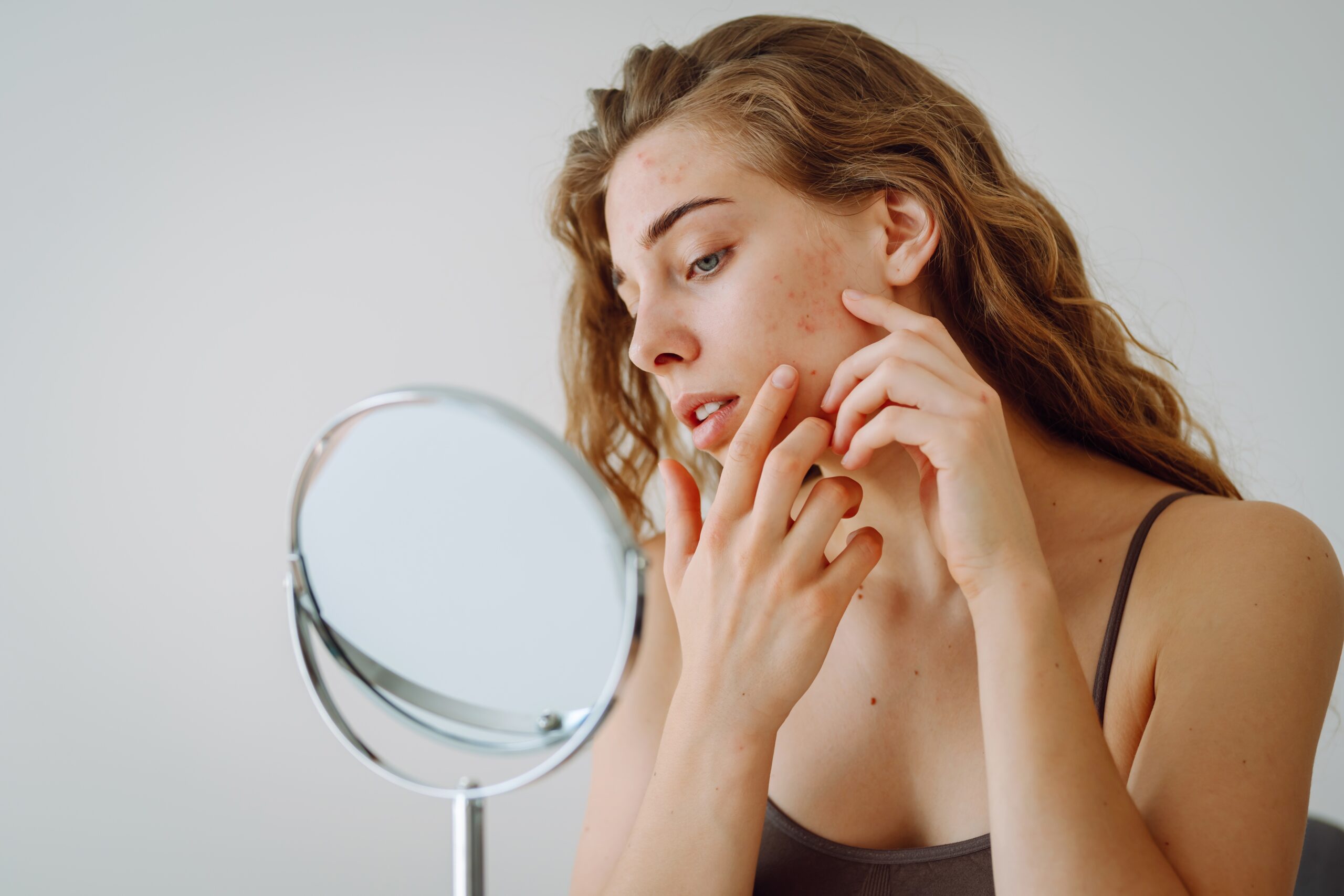
Winter can be tough on your skin. Between harsh winds, cold temperatures, and indoor heating, your skin loses moisture, setting the stage for breakouts, irritation, and dryness. Winter acne can happen to anyone. The mix of dryness and extra oil production often leads to breakouts, just when you don’t want them.
If you’re struggling to keep your skin happy during the colder months, now is the perfect time to tackle winter skin challenges with some simple tips. Let’s explore why winter acne happens and how you can keep your skin calm, clear, and comfortable all season long.
Why Does Winter Acne Happen?
Winter weather might dry out your skin, but that doesn’t mean it eliminates oil. When your skin senses dryness, it tries to overcompensate by producing more oil. This mix of flaky skin, trapped oil, and bacteria creates the perfect conditions for breakouts.
Other winter triggers for acne include:
- Hot Showers and Dry Heat: Long hot showers and indoor heating can keep you warm, but they can also strip away your skin’s natural oils, causing dryness and irritation.
- Heavy Clothing and Layers: Hats, scarves, and masks trap sweat and oil on your skin, leading to breakouts around your chin, forehead, and neck.
- Stress and Diet: The holidays can bring on a lot of stress, sugar, and processed foods, all of which may flare up acne.
How to Prevent and Treat Winter Acne
The good news? You can keep winter skin concerns under control with a few simple steps and the right products.
1. Protect Your Skin From the Elements
Cover up when heading outside, but be mindful of fabrics. Breathable materials like cotton under your winter layers can help reduce irritation. Wash scarves, hats, and masks regularly to prevent trapped bacteria. And don’t forget sunscreen, even in winter. Snow reflects the sun’s rays more effectively than sand or water, so UV protection is still a must.
2. Keep Skin Clean and Calm
Choose natural products that cleanse without stripping moisture. Peaceful Mountain’s Eczema Rescue is perfect for calming dry, irritated winter skin and keeping it balanced. Avoid cleansers or toners with alcohol and skip harsh exfoliating scrubs, which may irritate already sensitive skin.
3. Hydrate Without Clogging Pores
Use a light, oil-free moisturizer to restore hydration while keeping your pores clear. Look for products labeled “non-comedogenic” to avoid clogging your pores. Moisturizers rich in essential fatty acids (EFAs) are great for keeping skin healthy. It may also help to look for products containing niacinamide, a form of vitamin B3 that supports skin repair.
4. Target Breakouts with Gentle Treatments
Topical gels with natural ingredients can help clear breakouts without irritating your skin. Peaceful Mountain’s Acne Rescue Gel reduces redness and soothes acne-prone skin with a gentle formula. Avoid acne treatments that contain benzoyl peroxide or salicylic acid in the winter since they can further dry out your skin and cause more breakouts.
5. Stay Hydrated and Nourished
Drink plenty of fluids to help your skin retain moisture. Eating foods rich in nutrients can also support your skin. Omega-3s found in salmon, walnuts, and flaxseed reduce inflammation and promote healthier skin. Include antioxidant-rich foods and cut back on dairy and carbs, as studies have shown a low-glycemic diet may help reduce acne. For oily skin, try adding almonds and grapefruit. For dry skin, increase water intake and eat more avocados and spinach.
Simple Steps for Long-Lasting Skin Health
Caring for your skin in winter doesn’t have to be complicated. Small changes to your routine, like using gentle natural products, staying hydrated, and protecting yourself from the elements, can go a long way toward keeping your skin balanced and healthy. If you’re struggling with winter breakouts, focusing on the basics and treating your skin gently will make all the difference.

 Tired of Cold Sores? Here’s What You Can Do About Them
Tired of Cold Sores? Here’s What You Can Do About Them